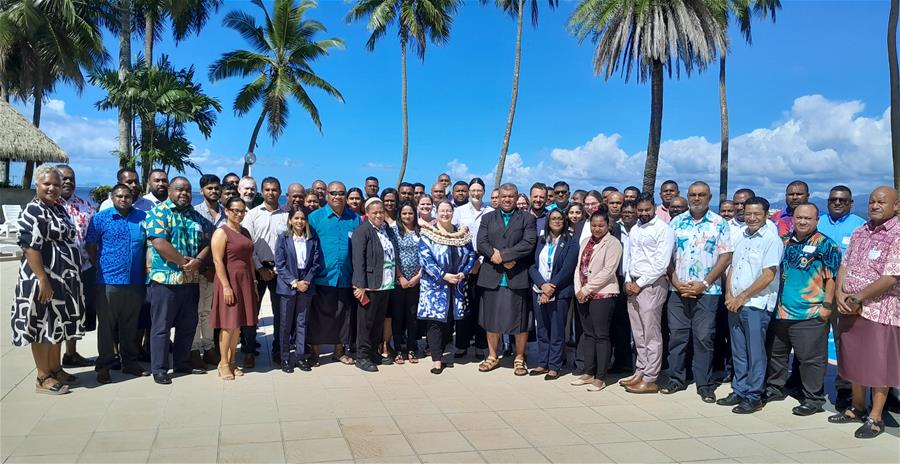SUVA, Fiji (17 January 2024): The Land Transport Authority of Fiji partnered with the US National Renewable Energy Laboratory and the Pacific Centre for Renewable Energy and Energy Efficiency (PCREEE) to facilitate a three-day Technical Workshop on ‘Electric Vehicles and Charging Infrastructure in Pacific Islands: Planning, Deployment and Key Considerations’ at the Holiday Inn in Suva.
The workshop was from January 13-15, was opened by US Ambassador to Fiji, Kiribati, Nauru, Tonga, and Tuvalu – Ms Marie Damour.
Ms Damour shared that promoting the greater development of electric vehicles (EVs) in Fiji and other Pacific Islands was more about building a resilient and stronger set of economies that were less dependent on expensive imported fossil fuels.
“Supporting the development of electric vehicles can also foster innovation, create new jobs and help grow the overall economy. For example, there are now over 200,000 jobs in the US directly related to the EV industry and economists estimate that EVs and their related manufacturing sectors can generate almost one million jobs in the years ahead,” Ms Damour said.
LTA Chief Executive Officer Irimaia Rokosawa said the three-day workshop built on the momentum of the recent webinar on EVs and Charging Infrastructure.
He said transportation electrification was more than just a technological shift but a cornerstone of collaborative efforts to reduce carbon emissions, enhance energy security and build climate resilience.
“As with any transformative journey, the path forward is not without its complexities. This technical workshop also presents an opportunity to learn from the experiences and lessons of our Pacific neighbours, a reminder that we are not navigating this transition alone,” Mr Rokosawa said.
“Discussions over the next three days will focus on deployment strategies tailored to unique needs, charging equipment standards to ensure safety and compatibility, role of gender equity in transportation planning and decision-making, EV impacts on resilience, fleet electrification, innovations in on-demand and public transit and critical issues such as end-of-life management and EV cybersecurity.”
Mr Rokosawa said electric vehicles were no longer just a concept of the future but were integral to the present.
“Their adoption not only promises significant environmental benefits by reducing greenhouse gas emissions but also brings about opportunities for innovation in energy, technology, and transport systems. However, transitioning to EVs is not without its challenges, particularly in regions with unique geographical and logistical considerations like ours,” the CEO shared.
“As an island nation, Fiji faces unique circumstances that require tailored approaches. From infrastructure development to policy implementation, we need strategies that not only support our transition to sustainable transport but also reflect our local realities.”
He said the Authority was committed to leading Fiji’s journey toward a greener and more sustainable transport sector.
This transition, Mr Rokosawa said, aligned with Fiji’s national goals of reducing carbon emissions and building resilience in the face of climate change.
“It is clear that no single organisation can achieve this alone. Collaboration, knowledge-sharing, and capacity building are key—and this workshop is a testament to those principles,” he said.
The workshop also aimed to build capacity of LTA staff while also driving Fiji’s transition to a greener, resilient, equitable and more sustainable transportation sector.
ENDS
